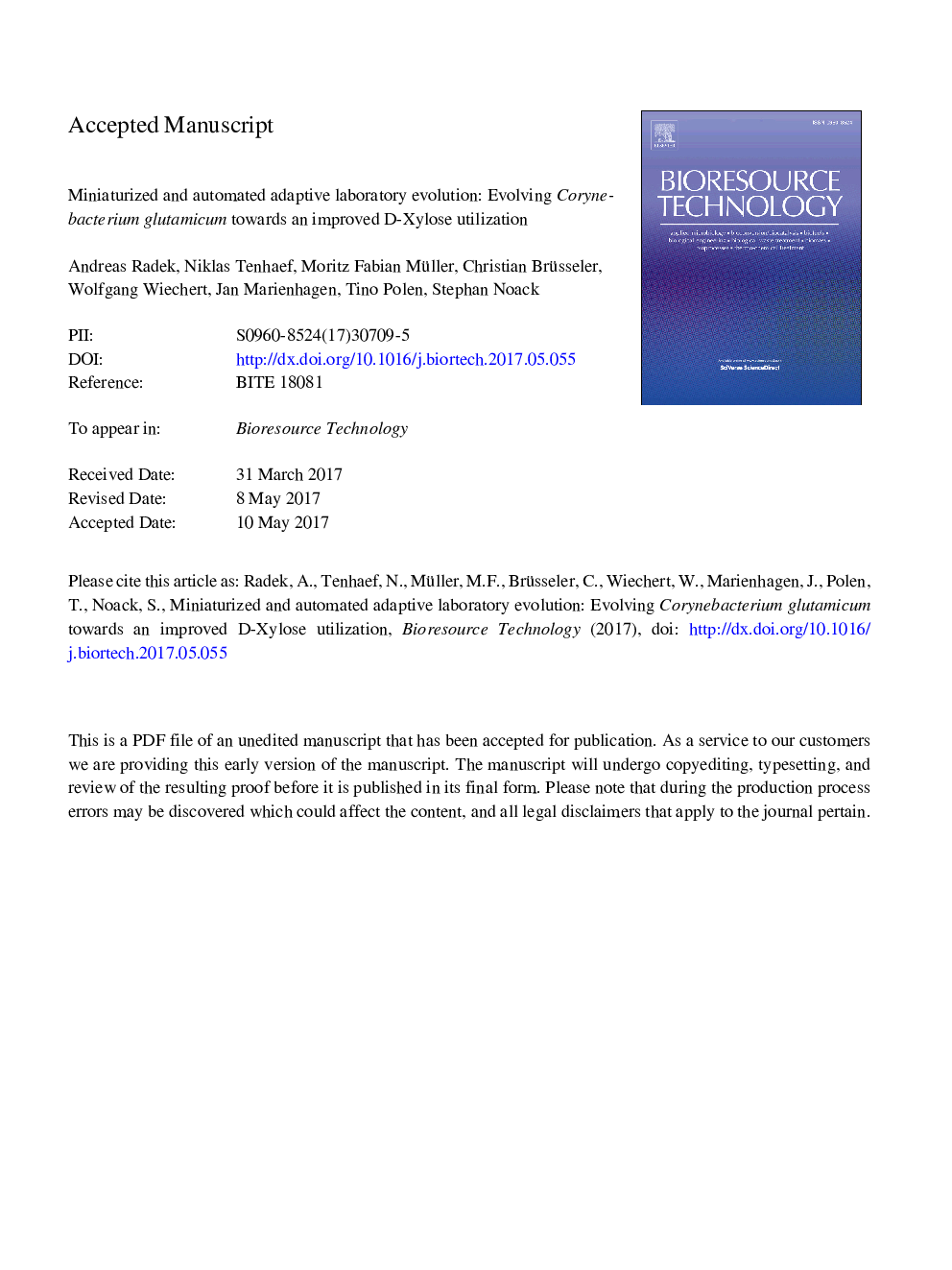| Article ID | Journal | Published Year | Pages | File Type |
|---|---|---|---|---|
| 7069392 | Bioresource Technology | 2017 | 32 Pages |
Abstract
Adaptive Laboratory Evolution (ALE) is increasingly being used as a technique for untargeted strain optimization. This work aimed at developing an automated and miniaturized ALE approach based on repetitive batch cultivations in microtiter plates. The new method is applied to the recently published strain Corynebacterium glutamicum pEKEx3-xylXABCDCc, which is capable of utilizing d-xylose via the Weimberg (WMB) pathway. As a result, the significantly improved strain WMB2evo was obtained, showing a specific growth rate of 0.26Â hâ1 on d-xylose as sole carbon and energy source. WMB2evo grows stable during lab-scale bioreactor operation, demonstrating the high potential of this strain for future biorefinery applications. Genome sequencing of cell samples from two different ALE processes revealed potential key mutations, e.g. in the gene cg0196 (encoding for the transcriptional regulator IolR of the myo-inositol metabolism). These findings open up new perspectives for the rational engineering of C. glutamicum towards improved d-xylose utilization.
Related Topics
Physical Sciences and Engineering
Chemical Engineering
Process Chemistry and Technology
Authors
Andreas Radek, Niklas Tenhaef, Moritz Fabian Müller, Christian Brüsseler, Wolfgang Wiechert, Jan Marienhagen, Tino Polen, Stephan Noack,
